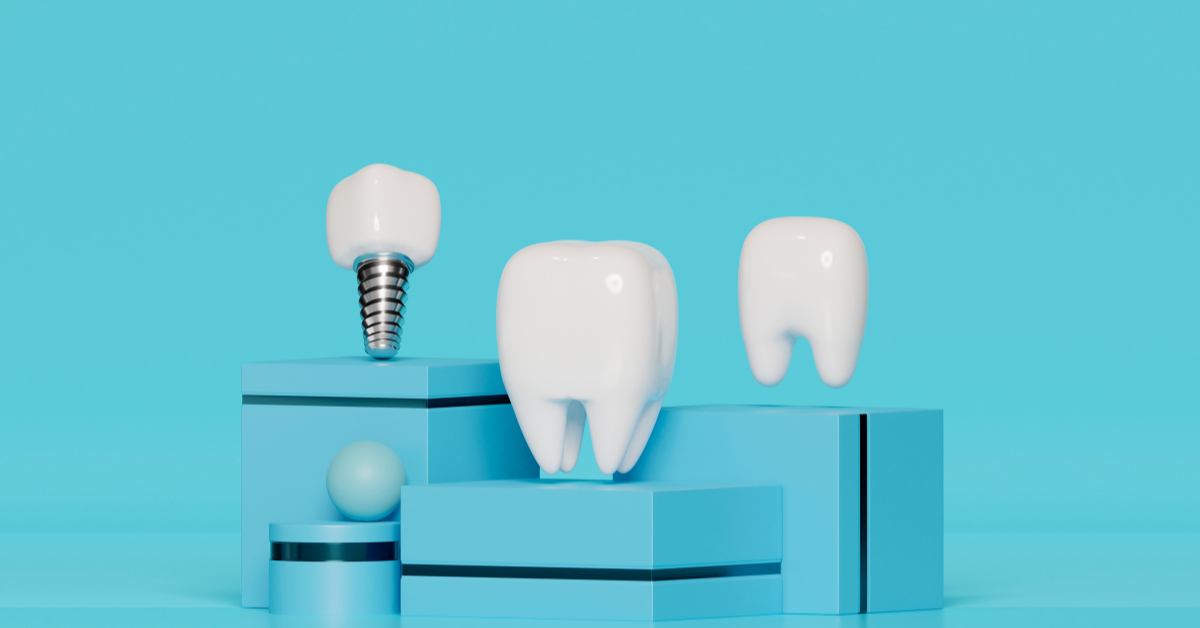
Dental Implants vs. Dentures: In-Depth Comparison Guide
When replacing lost teeth, the consideration that you will make will ultimately come down to dental implants vs. dentures. Both methods are able to restore function as well as return the appearance of your smile but each option has advantages specific to you, your lifestyle, and your budget. Dental implants are a permanent tooth solution, imitate the function of natural teeth, decrease the likelihood of bone loss, and can last a lifetime. They require a minimum amount of density in the jawbone, and are more expensive to the patient upfront, but easier to clean and last longer than dentures. Dentures are removable, less expensive, do not require extensive surgery, and may be suitable for patients who have had bone loss or other health conditions. However, dentures may typically need to be re-lined or re-based and may move more than implants in the mouth.
This guide will provide information and weigh the pros and cons of dentures vs. dental implants so that you can select the option that is right for your oral health and lifestyle.
What Are Dental Implants?
Dental implants provide a surgical, permanent means of replacing teeth with titanium posts /screws that are implanted into the jawbone. The titanium posts function as artificial roots for the crown, bridge, or denture, and they look, feel, and act like natural teeth, which is one of their special advantages for long-term tooth replacement.
Significant features of dental implants:
- Natural appearance
- Secure, stable fit
- Preservation of bone loss and jaw structure
- Long-lasting with proper care
What Are Dentures?
Dentures are removable prosthetic instruments designed to replace missing teeth and restore function and appearance. Dentures come in two main types:
- Full Dentures: These prosthesis will replace either an upper or lower complete arch of teeth.
- Partial Dentures: If some natural teeth remain, partial denture prosthesis will fill the gaps, stabilize the natural teeth, and help maintain alignment.
Key features of dentures:
- More cost-effective and less expensive than alternatives
- Non-invasive, non-surgical
- Quick and easy to provide comfort
Dental Implants vs. Dentures: Pros and Cons Comparison Table
| Features | Dental Implants | Dentures |
|---|---|---|
| Look and Feel | Natural, like real teeth | Less natural, may feel bulky/plasticy |
| Longevity | Can last a lifetime | 5-10 years with proper care |
| Bone Preservation | Prevents jawbone deterioration | No stimulation, may lead to bone loss |
| Maintenance | Brushing, flossing, regular check-ups | Require regular cleaning and adjustments |
| Cost Consideration | Higher initial investment | Lower initial cost |
| Stability and Comfort | Firmly anchored, no slippage | May slip or move while eating |
| Chewing Efficiency | High, similar to natural teeth | Lower, limited chewing capacity |
| Surgical Procedure | Required for implant placement | No surgery required |
| Suitability for Jawbone Health | Ideal for preserving jawbone | May accelerate bone loss |
| Customization Options | Crowns, bridges, and implant-supported dentures | Full or partial options available |
Hybrid Option: Implant-Supported Dentures
If affordability and stability are important to you, implant-supported dentures may be just what you are looking for. This option is a combination of the security of dental implants and the affordability of dentures, while offering greater comfort and function.
Advantages of Implant-Supported Dentures:
- Improved stability and comfort compared to traditional dentures
- Greater chewing and speech function
- Preservation of jawbone density and prevention of bone loss
Factors to Consider: Dental Implants or Dentures?
Financial and Budget Considerations
Even though dental implants have a more expensive upfront cost, they are a better value over the long term because they last longer than dentures. Dentures are much less expensive upfront but will likely require replacement or adjustment more frequently over the long term.
Logistics Regarding Oral Health and Bone Density
If you have enough bony tissue density to support the implants, dental implants would be the ideal prosthesis for you. Dentures may be a better prosthesis option if there has been extensive bony degradation or you are not a good candidate for surgery.
General Longevity and Maintenance
Dental implants require very little maintenance and can last a lifetime if maintained properly. Denture ownership requires regular cleaning, adjustments over time, and sometimes replacement if damage occurs.
Final Thoughts: Which Option is Best for You?
Choosing between dental implants and dentures depends on several factors, including your budget, oral health, and long-term goals. Dental implants offer a permanent, natural-looking solution with better stability and longevity, while dentures provide a more affordable, non-invasive alternative that is easier to customize.
To determine the best option for your individual needs, schedule a consultation at Radiant Smiles Dental Clinic today!
Frequently Asked Questions (FAQs)
- Are dental implants better than dentures?
Dental implants provide a more permanent, stable, and natural-looking solution compared to dentures. However, dentures may be a better choice for those seeking a non-invasive and affordable option. - How long do dental implants and dentures last?
With proper care, dental implants can last a lifetime. Dentures, on the other hand, typically need replacement after 5-10 years. - Do dental implants hurt?
The implant procedure is performed under local anesthesia, so patients usually experience minimal pain. Some post-procedure discomfort is normal and can be managed with pain medication. - Are dentures uncomfortable to wear?
Initially, dentures may feel uncomfortable or bulky. However, with proper adjustments and regular wear, most patients adjust to them. - How do I maintain my dentures or dental implants?
Dentures: Clean regularly, soak overnight, and visit the dentist for adjustments.
Dental Implants: Brush, floss, and maintain routine dental check-ups to keep them in top condition. - Can I switch from dentures to dental implants later?
Yes, many patients transition from dentures to dental implants when they seek a more stable and long-term solution. A dental consultation can determine if you're a candidate for this procedure.

